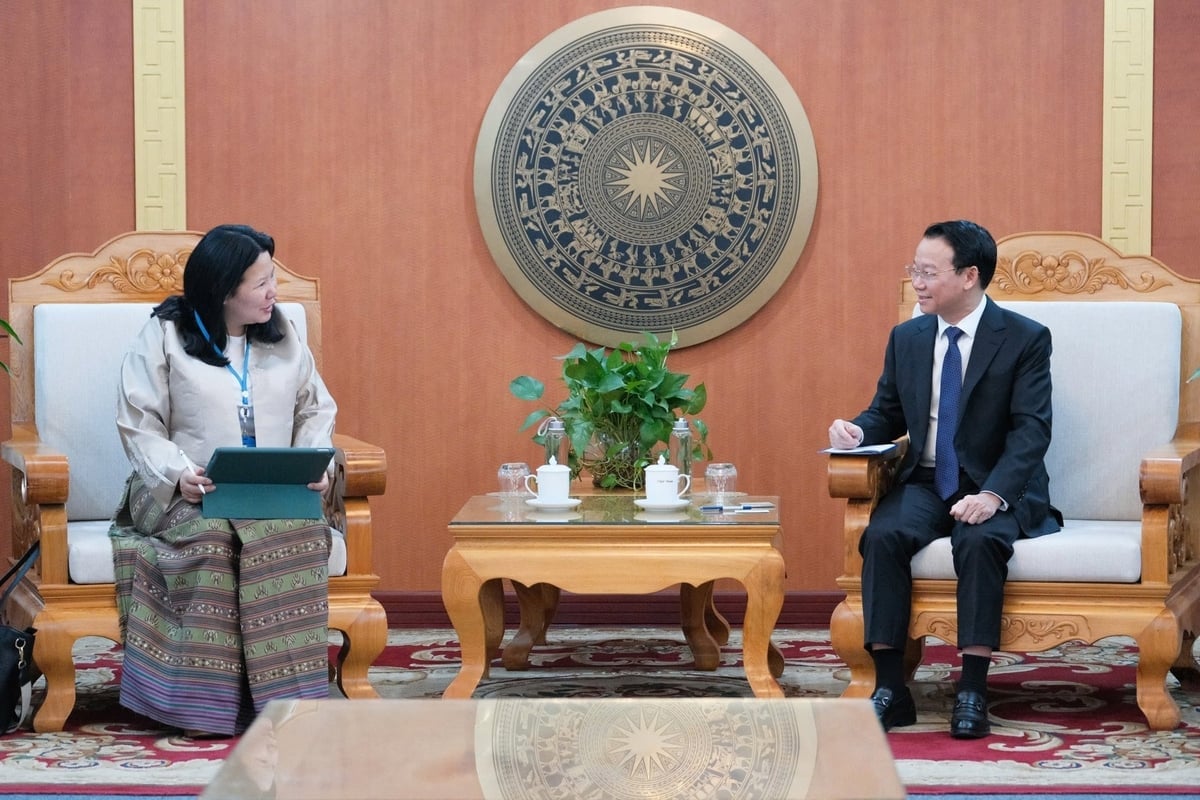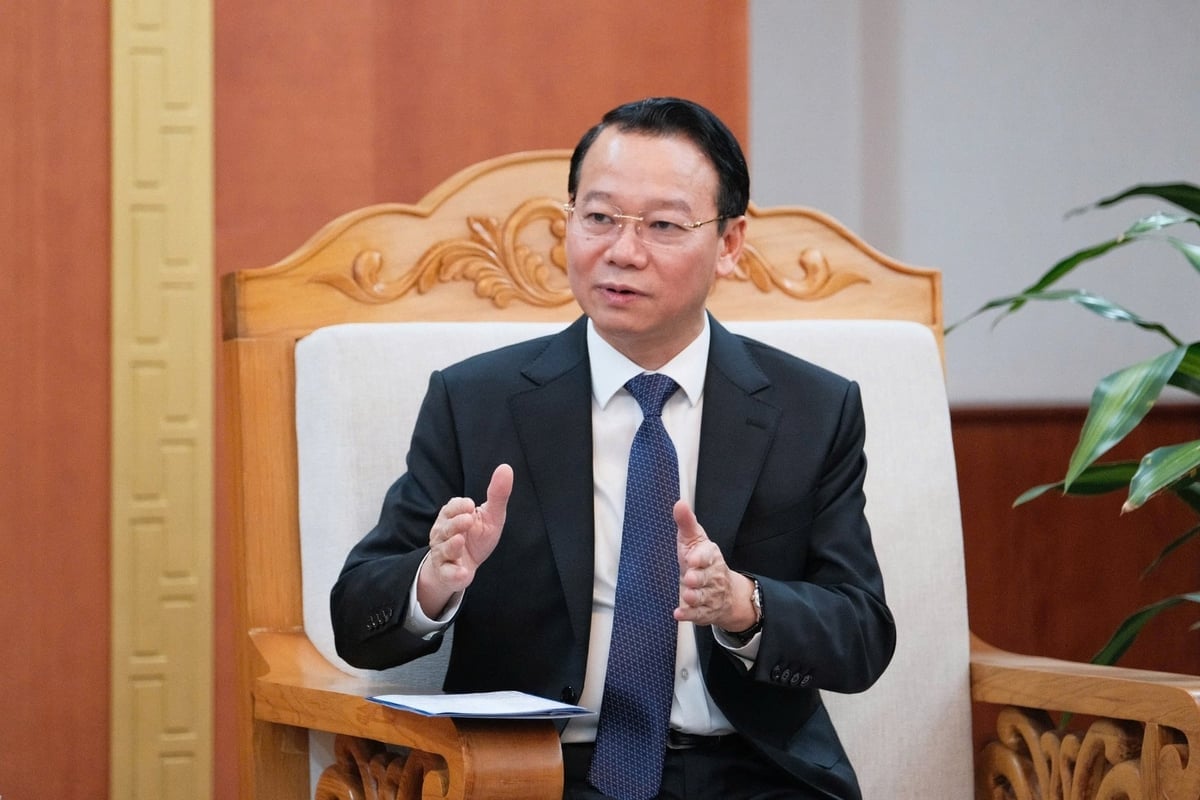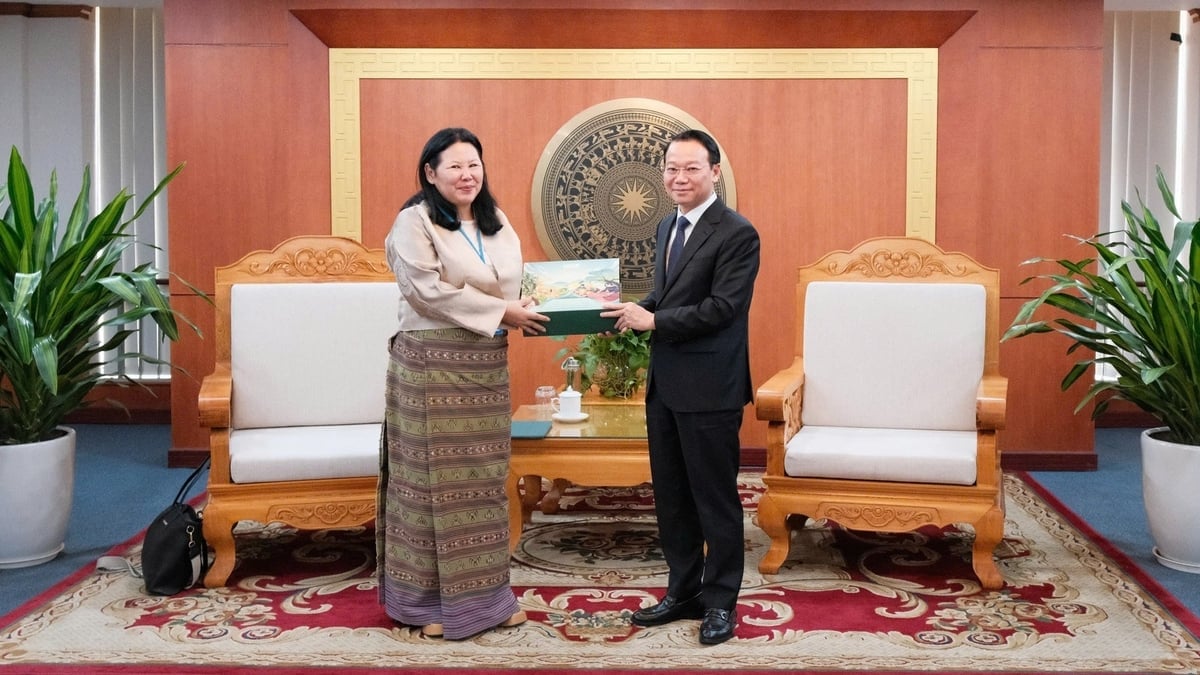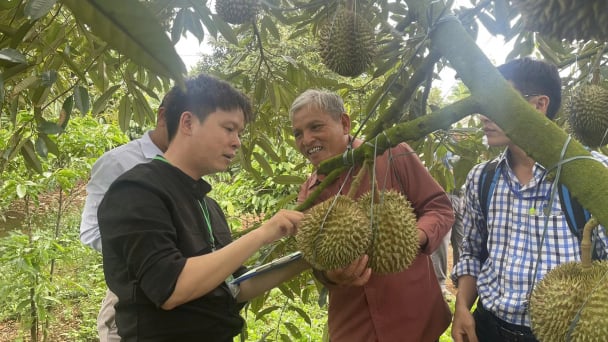May 31, 2025 | 15:38 GMT +7
May 31, 2025 | 15:38 GMT +7
Hotline: 0913.378.918
May 31, 2025 | 15:38 GMT +7
Hotline: 0913.378.918

Minister of Agriculture and Environment Do Duc Duy received Ms. Dechen Tsering, UNEP Regional Director for Asia and the Pacific. Photo: Quynh Chi.
At the meeting, Minister Do Duc Duy confirmed that UNEP has made numerous practical contributions to assist Vietnam in enhancing its environmental management capacity and improving environmental conditions. The Minister expressed his desire to continue to receive robust support and collaboration from UNEP in the future in order to collectively confront the increasing environmental challenges.
He underscored the significant potential of the sectors of cooperation with UNEP and expressed his support for their continued development.
On behalf UNEP, Ms. Dechen Tsering highly appreciated the long-standing partnership between UNEP and the Government of Vietnam in areas such as climate change, biodiversity conservation, and environmental policy development. UNEP is ready to provide Vietnam with technical support in developing the carbon market, climate finance, emission-reduction technologies, support for small and medium-sized enterprises in agriculture, green building materials, urban cooling, and other emission reduction strategies.

Minister Do Duc Duy affirmed that UNEP has made many practical contributions in supporting Vietnam in enhancing its management capacity and improving environmental conditions. Photo: Quynh Chi.
Minister Duy shared that in 2025 and the 2026–2030 period, the Government of Vietnam has identified environmental management and pollution control as one of its key priorities.
The Minister emphasized that environmental pollution is a transboundary issue, and therefore, the approach must be global, beginning with regional cooperation. In this context, UNEP—particularly the UNEP Regional Office for Asia and the Pacific and UNEP Vietnam—are important partners that have been and will continue to accompany Vietnam in addressing challenges not only at the national level but also contributing to global efforts.
The core issue is the need to control sources of persistent pollution, including persistent organic pollutants (POPs), mercury, and plastic waste. Vietnam has approved the Law on Environmental Protection 2020 and is presently in the process of drafting implementation decrees. The extended producer responsibility (EPR) mechanism for products and packaging that contribute to long-term pollution is a particular focus. This is a practical measure that will enable us to fulfill our international obligations.
Regarding climate change response, Minister Do Duc Duy noted that Vietnam seeks continued support from UNEP in sharing experiences from developed countries on controlling ozone-depleting substances and effectively launching the carbon market as swiftly as possible.
The "One million hectares of high-quality, low-emission rice linked to green growth in the Mekong Delta" project is an example of Vietnam's initial efforts to make the shift to circular, low-emission farming, as an agricultural nation. However, the Minister emphasized that, in order to effectively implement these models, Vietnam must collaborate with UNEP and international partners to provide resources, technical assistance, technological innovation, and the development of emission monitoring and management systems.
Minister of Agriculture and Environment Do Duc Duy also emphasized the necessity of managing regional pollution sources, such as air pollution, river basin pollution, marine plastic waste, and and pollution from traditional craft villages in rural areas. In order to increase public awareness of environmental protection, Vietnam has implemented a variety of environmental education programs in schools and community outreach initiatives.
However, the country remains eager to learn more creative and multi-dimensional approaches from UNEP and other countries. According to the Minister, some environmental issues can be addressed through a change in public awareness, while others require incorporation into legal frameworks to ensure enforceability.

Minister Do Duc Duy presents a souvenir to a UNEP representative. Photo: Quynh Chi.
During the discussion, UNEP representatives emphasized that global environmental degradation is a critical issue closely tied to sustainable agricultural development—a sector that demands focused attention. In ongoing negotiations for a global treaty on plastics and plastic waste, countries have expressed differing views on the legal binding nature of such an agreement. While some nations support clear legal commitments, others remain cautious. As the UN agency serving as the secretariat of this negotiation process, UNEP hopes for full participation from member states in a global treaty that includes annexes tailored to each country’s specific legal and regulatory contexts.
UNEP acknowledged Vietnam's proactive efforts to promote the extended producer responsibility (EPR) mechanism for waste management, particularly in dealing with plastic waste, in response to the Minister's remarks. UNEP's Economic and Social Committee is in the process of actively coordinating policies on sustainable development and pollution control, and it is in close collaboration with international financial institutions like the World Bank (WB) and the Asian Development Bank (ADB). This provides a strong platform to facilitate regional collaboration and information exchange, especially in developing green and circular economies.
In addition, UNEP expressed a strong desire to include Vietnamese research institutes and scientific organizations in its membership, in order to jointly contribute to and benefit from innovations in green technology and advanced emission-reduction solutions, through its global network of Climate Technology Centres.
Minister Do Duc Duy expressed strong support for the initiative to develop an international treaty on plastic waste—akin to the Paris Agreement on climate change. He emphasized that such a step is essential to fundamentally address the global plastic pollution crisis. Vietnam supports the establishment of mechanisms such as plastic waste quotas and credit systems and hopes UNEP will continue its coordinating and advocacy role to engage more countries in the negotiation process and secure commitments to implement the treaty.
UNEP representatives congratulated Vietnam on hosting the “Partnership for Green Growth and the Global Goals 2030” (P4G), noting its special significance. UNEP looks forward to synthesizing and sharing effective models and solutions from the summit with other member states.
P4G Summit (Hanoi, April 15-17, 2025), themed "Sustainable and people-centered green transition,” is the largest multilateral high-level event on green growth hosted by Vietnam in the 2021-2026 period. Vietnam Agriculture and Nature Newspaper (VAN) will update regularly Vietnam's strong commitments, proactive role and international responsibility at the P4G Summit.
Translated by Dieu Linh

(VAN) For the durian industry to succeed, the value chain must fulfill its commitments to the government, the community, and international partners.

(VAN) Vaccinating juvenile pangasius helps reduce disease, antibiotic use, and farming costs, increasing profits for export-oriented farmers in An Giang.

(VAN) Due to a limited supply of workforce and competitive recruitment requirements, businesses struggle to retain talented veterinary human resources.

(VAN) WOAH’s guidance aims to mitigate disease risks through a One Health approach that balances economic, conservation, and public health interests.

(VAN) Ms. Nguyen Thi Dung, Deputy Director of Ngoc Hoang Cooperative, shared about the journey of bringing dragon fruit to Europe, achieving annual revenues in the billions of VND.

(VAN) Bamboo products from Thang Tho Bamboo Cooperative have reached many countries around the world, while also creating jobs for local workers.

(VAN) The Management Board of Con Dao National Park reported that a green sea turtle, tagged in the Philippines, has traveled thousands of kilometers to lay 84 eggs on Bay Canh Islet.